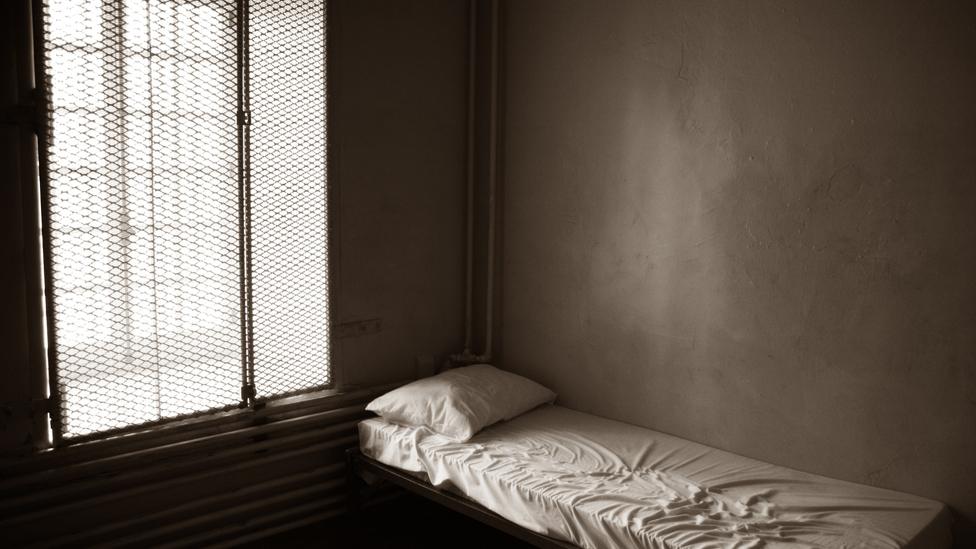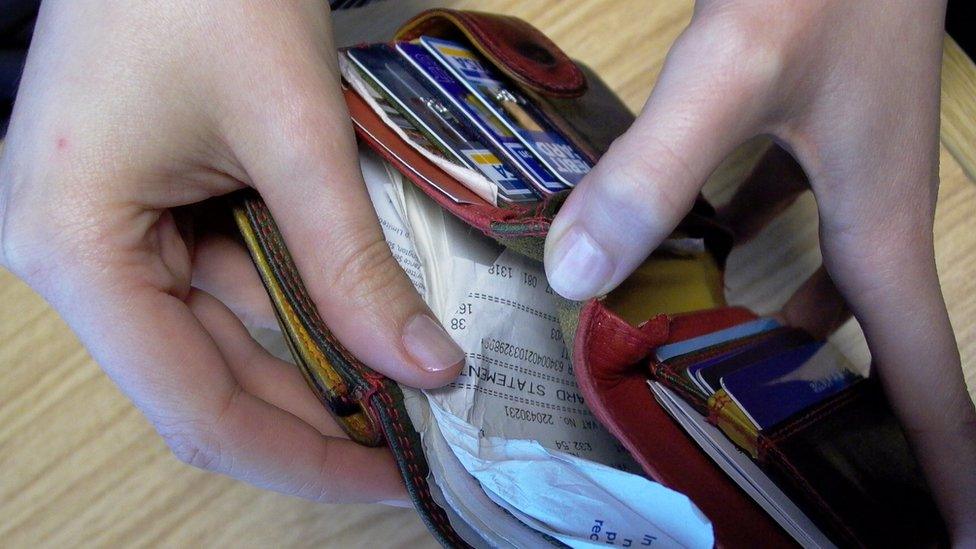Welsh prisoners 'should be able to vote'
- Published

The loss of the vote is subject to a sentencing "lottery", the researchers claim
Prisoners from Wales should be given the vote in Welsh elections, university researchers have said.
The Welsh Assembly's equality committee is holding an inquiry into voting rights for prisoners.
Dr Robert Jones and Dr Greg Davies from Cardiff University's Wales Governance Centre told the committee that the loss of a vote was due to a sentencing "lottery".
They said restoring voting rights would improve Wales' international standing.
In their report, the academics argued the loss of the vote was subject to a lottery, in that the same offence may or may not result in jail time depending on a judge's ruling.
They said out of 47 Council of Europe members, only the UK, Armenia, Bulgaria, Estonia and Russia denied prisoners the vote.
'Forgotten and marginalised'
Giving the vote to those who reside in Wales - rather than those in prison in Wales - would improve their reintegration and resettlement on release, according to the researchers.
Removing the vote had resulted in prisoners being "forgotten and marginalised by policy makers, politicians and the public at large," and there was no evidence the loss of voting rights provided any deterrent from committing crime, they wrote.
The academics said prisoners should be given a postal vote for assembly and local elections in Wales, and this would be "a powerful demonstration of [Wales'] commitment to the promotion of human rights and democratic engagement".
"It is our view that this would enhance the international reputation of Wales and, at the same time, help to mitigate the damage caused by the UK government's refusal to comply with its legal obligation to implement adverse judgments of the ECHR [European Convention on Human Rights]," they added.
Last week, research from Dr Jones said Wales had the highest imprisonment rate across western Europe.
At the end of September 2018, 36.5% of all Welsh prisoners, based on home address prior to entering custody, were held in prisons across England.
In total, Welsh prisoners were spread across 103 prisons in England in September 2018.
A Welsh Government spokeswoman said: "We support the principal of enfranchising Welsh prisoners and are currently considering options for local government elections."
'A cup of cold sick'
Both UKIP's Gareth Bennett and former Conservative group leader Andrew RT Davies said the public would not support such a move.
"In my opinion giving those behind bars the opportunity to vote would go down like a cup of cold sick with the majority of the Welsh public," said Mr Davies.
But Plaid Cymru justice spokesperson Leanne Wood said giving prisoners voting rights was "in the interests of upholding human rights and the principles of democracy".
Mark Day from the Prison Reform Trust was asked by equality committee chair and Labour AM John Griffiths how "public opinion might be reconciled" with giving prisoners the vote "on the presumption that there might be a degree of difference of opinion amongst the general public".
Mr Day said politicians had "an important role" in upholding "fundamental rights".
"I think I'd also look at the example of others countries, such as the Republic of Ireland, who did get rid of their own ban on prisoners voting with very little public fuss, so I think it can be done," he said.
Ireland lifted its ban in 2006, passing legislation allowing all prisoners to vote by post in the constituency where they would ordinarily live.
On Wednesday, former local government minister Alun Davies said he had proposed legislation allowing prisoners on "relatively short sentences to vote" in Wales.
"I look forward to the Welsh Government enacting this legislation later in the year," he said.
"This is an essential first step in creating a justice system which is based upon rehabilitation and helping people to rebuild their lives."
- Published16 January 2019

- Published18 December 2018

- Published2 November 2018
